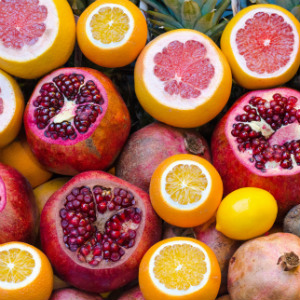
Organic or not: what’s the real price?
Organic…. should we bother?
The answer I’m afraid is a RESOUNDING YES!
Our foods are intentionally laced with thousands of chemicals in order to make them grow better, survive better, look better and you guessed it , taste better! But the harm for our health and the environment is irreversible and unfortunately the farmers are under so much pressure they can’t afford to care.
These chemicals are not only changing the way our bodies function, but they are changing our DNA!
If that’s not scary enough to take action then read this;
Almost 90% of ingredients used in cosmetics and personal care products have not been tested for personal human effects. (US National Academy of Sciences)
Today’s food chain bears little resemblance to that of the our ancestors. The nutrient levels have been stripped as a result of fertilisers, pesticides, antibiotics and hormones. Our food is processed and preserved in order to give it a longer shelf life, resulting in vitamin and mineral loss. Oftentimes chemicals are ADDED to our foods to make them look and taste better, and food are increasingly being synthesised in laboratories, irradiated or dyed to make them look fresher and of course the grand-daddy of evils; genetically modified.
Our food industry today, unfortunately, is based more on economics than nutrition.
Most foods that we eat are nutritionally depleted of micro-nutrients (vitamins and minerals) and provide very little apart from empty ‘anti-nutrients’ that make us sick.
For me the scariest realisation was that some of these chemicals were mimicking our bodies own hormones and disrupting our endocrine system!
So I started shopping at growers markets and buying my meat from an organic butcher. I developed a relationship with the local fish shop to ensure what I was eating was as fresh as possible and low in toxic metals. When I do have to resort to supermarket bought so-called fresh food (some of it has been in the deep freeze for 12+ months) I wash it thoroughly with an organic vegetable cleaner and scrubbing brush.
I even converted my husband to organic wine!
But I’m not anal. I still eat out regularly and whilst I try to make the best choices I know most of the food I enjoy when eating out is not organic.
Remember the 80/20 rule – try to make conscious healthy decisions 80% of the time.
Fortunately, we live in an era where people are reverting back to buying local and supporting their community of local businesses. We are blessed in Australia to have an abundance to healthy, chemical free foods and markets relatively close to our finger tips. Whilst it might be slightly more expensive and take a bit more effort, you reap the rewards by saving on expensive healthcare bills later in life.
Consider it your insurance policy for the future.
Still not convinced? Here’s 7 more reasons to go organic;
- Better farming practices = better for us and the planet. Agriculture is thought to contribute to 30% of global warming due to CO2 emissions. Going organic means;
- Reduced greenhouse gas emissions: eliminating synthetic nitrogen fertilisers
- CO2 is captured back into the soil: a 23 year old project found that if 1000 farms were to convert to natural farming practices in Australia then the carbon, known as ‘humus’ restored to the earth would be the equivalent of removing 117k cars off the road each year
- Reduced landfill: Almost half of our landfill is food and garden waste. Organic and biodynamic farming practices recycle waste rather than discard it
- Organic farming practices increase resilience to droughts
- Restore the soil quality for future generations
- Reduce the chemical run off and residues in drinking water and waterways: pesticides used in agriculture are the number one reason for diminishing marine life, plants and animals
- Better taste
- Support local farmers
- Help curb the rise of the superbugs (those microbes that have become resistant to antibiotics through the overuse of, you guessed it, antibiotics!)
- Reduce exposure to heavy metals
- Support humane treatment of animals
- Increase biodiversity and support disappearing native habitats: research has found organic farms have 50% more plant, insect and bird life than non-organic farms
If you’re baffled about where to start (and it can be a bit overwhelming at first!) then I highly recommend these two resources to get you started:
Both offer courses and an abundance of free information.






